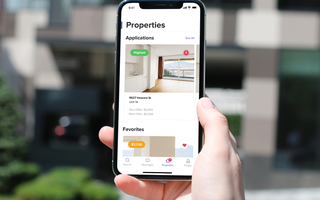{shortcode-7c7bbe6135eeefcaddcaabf3b81f6e9b8a01d9bc}
Work-life balance. It’s the Northwest Passage of the Harvard experience. Everyone talks about it, and we’re all searching for it, but does it really exist? Yes! Maybe? Sometimes if the weather is just right. But here’s the thing: It’s real. I’ve experienced it for myself. It was fleeting, but like the survivor of an alien abduction, I now know what’s out there.
Over the summer, I had an internship that showed it to me. And no, it wasn’t some blow-off job where I could easily prioritize life over work. My work-life “formula” wasn’t 20 percent work, 80 percent life. The difference between this full-time job and the full-time job of being a Harvard student was that my internship ended when I walked out of the office each evening. During the summer, I could get on a bus and go home, leaving work aside until the next morning. I found the ideal balance because I could institute a distinct separation between my job and my personal life.
At Harvard, especially because the vast majority of students live in on-campus housing, it’s nearly impossible to feel like you’re going home at the end of the day. We may only go to class for a few hours a day, but class persistently follows us around for the remaining hours of daylight and far into the night. We have lunch with our friends, and class is sitting on our shoulder reminding us to hurry up and get to the library. We go to the gym, and class is chasing us and yelling about our midterm next week. We take a nap, and class infiltrates our dreams with scenarios of tests we didn’t study for. We are constantly contained within the physical space of school and surrounded by people with the same school-centric mindset. It can feel nearly impossible to create any sort of balance when the boundaries between work and life have completely dissolved.
Is a blended social-professional lifestyle the only option for college students? There is no getting around the fact that academics have to take a central role in our lives. Nevertheless, I believe there is a way to keep our focus on academic success without allowing it to melt into every aspect of our lives.
The key is to set self-imposed work hours. It doesn’t have to be nine to five, but defining a consecutive schedule and confining all academic hours (including class, lab, studying, and homework) to that time slot may both force productivity and permit for down time. For when the end of your “work day” rolls around, you get to set the books aside and commit wholeheartedly to the activities, or non-activities, that give you joy: spending time with friends, reading for pleasure, playing a musical instrument, exercising, watching Netflix, sleeping. The list goes on and on.
We are allowed to have lives that are separate and distinct from our studies. In the mad rush of the semester, it can be easy to forget this little fact. We may feel guilty for taking time away from homework to enjoy ourselves. Establishing clear boundaries between work and life can give us the freedom to exercise this right without falling behind academically.
Here’s the catch: This whole method relies entirely on commitment. No one is going to stop you from falling asleep at 1 p.m. and then cramming until 3 a.m. to compensate. You have to set a schedule and hold yourself accountable. I must admit that I haven’t perfected this method yet. We’re all fallible, and it’s ok to fall behind sometimes. But just getting started by having the goals in mind can be a road to improvement.
Pre-set work hours can be the key to finding that elusive work-life balance. Imagine it: You go to work in the morning, get a lot done during the day, but you still have plenty left over for the next day. Instead of feeling bad until it’s all done — until you finish your last final — you set it aside completely when your work hours finish. You go about your evening free of anxieties and pressure, indulging in the things that make you who you are.
It feels pretty good, doesn’t it?
Romy Dolgin ’21, a Crimson Editorial editor, lives in Lowell House.
Read more in Opinion
In Defense of Work Expectations

















